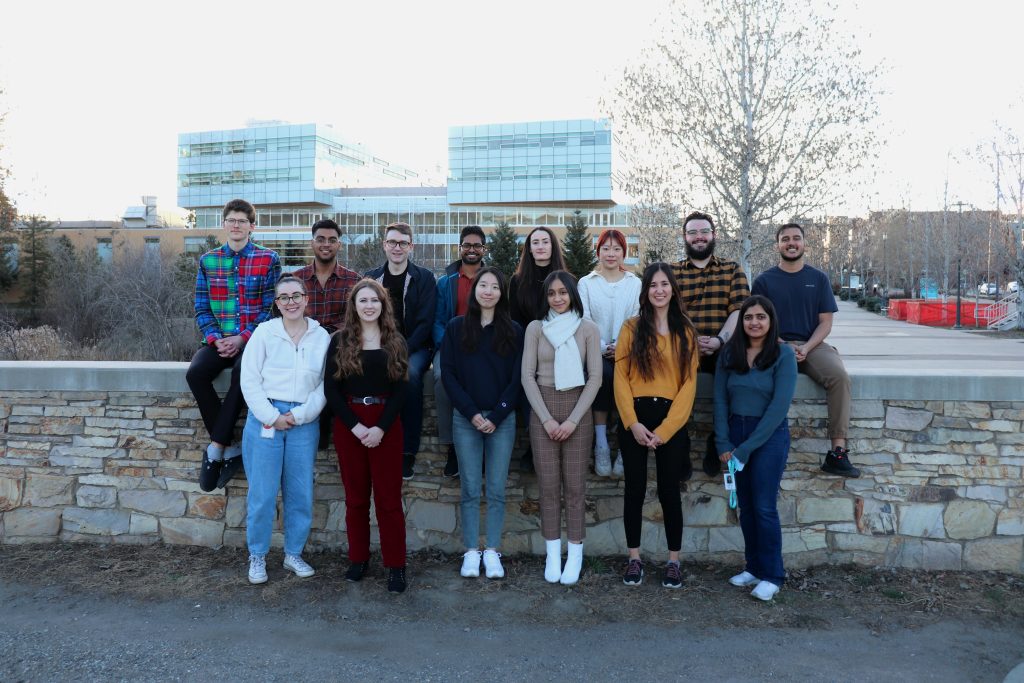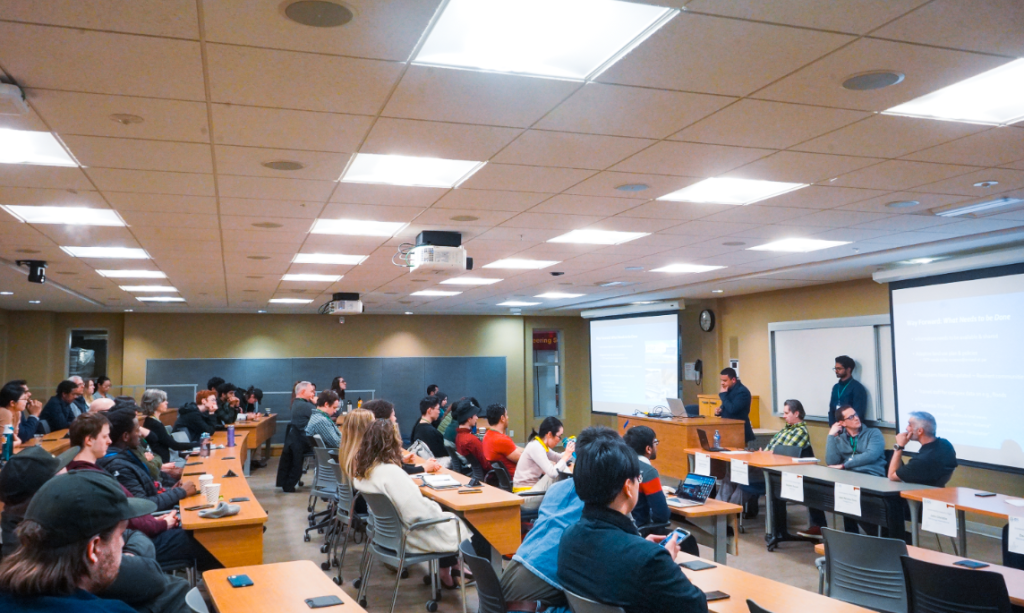It has been almost three years since a group of dedicated engineering students decided to launch a design club focused on sustainable solutions. Since then, Innovate, Design, Sustain (IDS) has been building upon the momentum those founding members established.

“We started at the beginning of pandemic with an idea that we could bring together what we’d been learning in class and help develop sustainable applications on campus,” says Sayra Gorgani, one of the founding members and an electrical engineering undergraduate student who graduates in June.
Since the outset, IDS hasn’t wavered in their enthusiasm towards sustainability and protecting the environment. The club has been focused on bringing clean-energy and efficient waste management design solutions across the Okanagan campus. In the past year alone, their successes include hosting a sustainability industry night featuring 15 companies, developing several campus waste initiatives, and participation in the Solar Bench and Solar Decathlon competitions.
“The success we had with IDS has reinforced our belief that every student can make a difference when it comes to sustainability and making the world a better place,” says Gorgani.

At February’s Sustainability Industry Night, participants were able to learn from professionals in different areas of sustainability and explore cutting-edge technologies taking place in the field. “IDS and Engineering Society’s first Sustainability Industry Night symbolized our club’s drive towards making an industry-wide impact, while giving students a unique platform to connect with the best in the field of sustainability,” explains Ruwaida Rashid, VP Events at IDS.
Along with the UBC Facilities team, IDS members helped conduct waste audits and several surveys to identify the challenges facing the Okanagan campus when it comes to contamination of the campus’ waste stream. IDS played an important role in re-designing the waste sorting visuals on campus from icons and to photos in an effort to clarify sorting requirements. “The new waste disposal designs in the Commons testify that when given a platform like IDS, student ideas can lead to a more sustainable and cleaner campus,” says Lakshay Karnwal, a team lead at IDS.

Members of IDS have also participated in student competitions related to sustainability. These collaborations include the Solar Bench Project and the Solar Decathlon Design Competition. The Solar Bench Project Team, supported in part by the Professional Activities Fund (PAF), successfully developed a system prototype. The joint UBCO/TRU Solar Decathlon Design Team is a finalist in the international competition. The Solar Decathlon competition challenges student teams to design and build high-performance, low-carbon buildings that mitigate climate change and improve our quality of life through greater affordability.

As the academic year ends, IDS’s focus continues to be bringing value to students of all faculties, programs and year-levels through unique professional development opportunities related to sustainability.
“Joining the IDS Solar Bench Project has allowed me to feel like I’m having a positive impact on the campus community, and has helped me find a group of friends and colleagues that share a passion for sustainability and building a better tomorrow,” says the Solar Bench lead Kurtis Dezall.